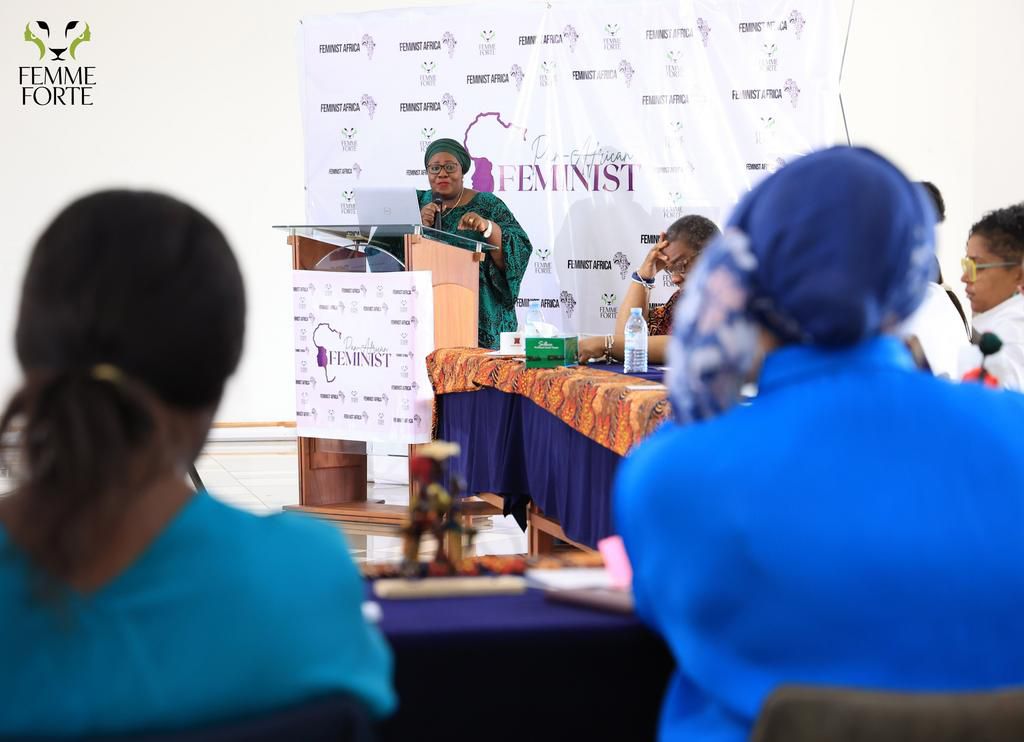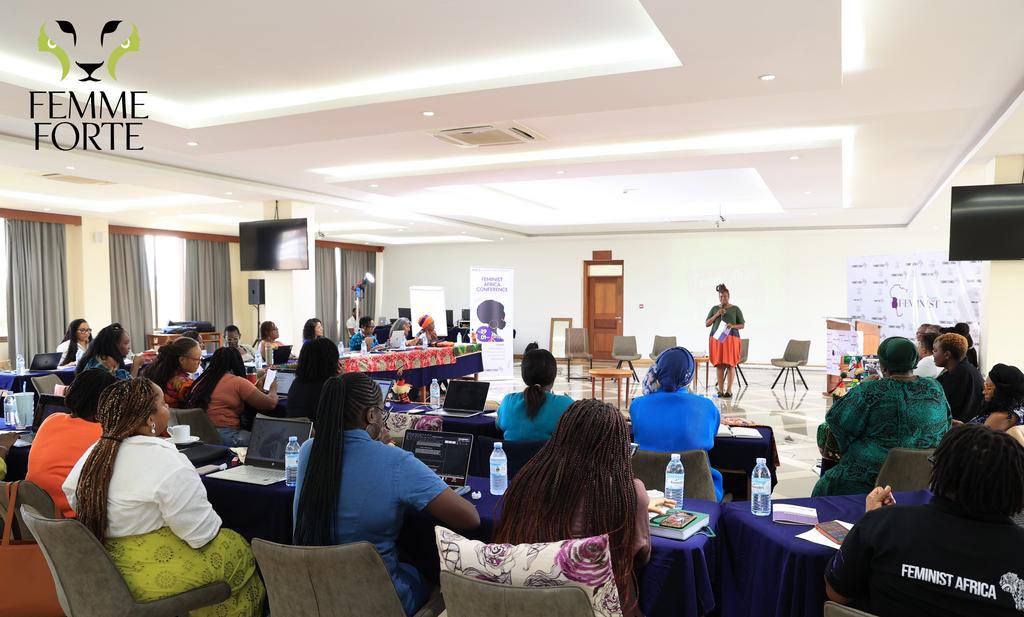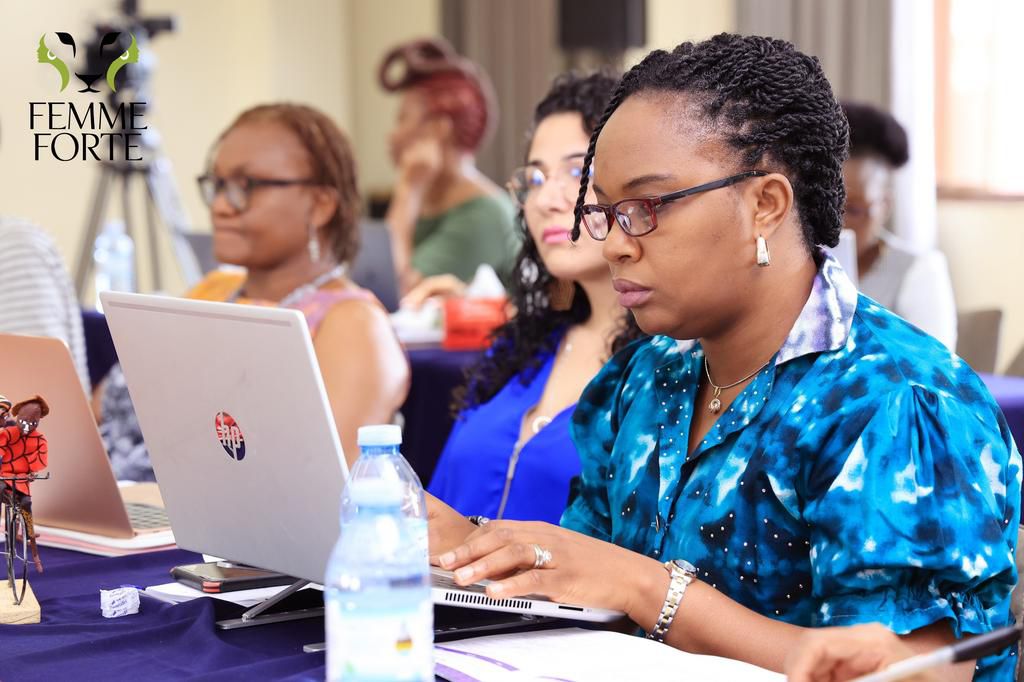Feminist Africa Conference 2023: Here are day 4 highlights
)
The discussions for day four of the Feminist Africa Conference 2023 focused on Afro-ecofeminism.
Mwanahamisi Singano, a feminist and climate justice expert, delivered a keynote address, and below are the main takeaways. (Some points have been paraphrased and others reproduced verbatim.)
As I continue to dedicate my life to the fight against climate injustice, my fight means nothing, absolutely nothing, if I don't aim to end the system of oppression, exploitation, and extraction.
Fortunately, my pan-African feminism gives me space – theoretical and methodological tools – to do that.
I shy away from identifying as an ecofeminist, partly because of the simplification of the power dynamics, systematic exclusion of structural issues… and stereotypes that place women as naturally nature 'carers' and divorced men from doing that.
I love to identify myself as an African feminist.
She called for a boycott of thematic feminism.
I pledge my alliance to be an African feminist.
Using ‘climate change Africa’ as a prompt in Google search, the Image section generates a systemically consistent picture that shows pastoralist communities (and negligible representation of coastal communities), women and children in a vulnerable and hopeless state.
The Internet is being fed a binary narrative of the climate crisis.
She noted that such portrayal mislead people who are offering solutions.
Visiting a slum in Dar es Salaam, Tanzania, she discovered that most slum-dwelling families sleep outside at night because of small rooms.
The sense of physical protection is gone. The sense of space is gone.

A woman told her that she’s never been physically intimate with her husband because women have been programmed to indulge their men at the expense of their pleasure. This woman no longer found sex pleasurable.
Another girl told her that her vagina was suffering from burning sensations because of too much heat. Her parent could afford sanitary pads. She was using plastic menstrual products.
Patriarchy is making this worse.
People are not fine, and we shouldn’t assume that they are.
The climate change crisis… is a manifestation of multiple crises, which we either ignored or perpetuated and accepted, willing, blindly, or out of a sheer sense of hopelessness.
While the plunder of Africa continues, it doesn’t just extract… minerals, raw materials, capital and wealth, it objectifies the natural environment.
It destroys our relationship with nature. In the capitalist world, nature is a product; it can be used, abused, and disposed of.
Our governments are giving polluters the right to continue polluting; air is a product that has been sold.
Communities are being evicted from their land so trees are planted for carbon dioxide.
The climate finance architecture follows strictly capitalist finance ideals.

The reason a lot of funding is channeled to mitigate climate change is because it’s big companies handling the project.
Policies that have been articulated in N.D.C., or Nationally Determined Contribution, are not going to be implemented. Most N.D.C.s are conditional.
The biggest financiers of climate action are multilateral banks. For instance, in 2020, a multilateral bank released $45.9 billion of climate finance, making it the first.
The second financiers are bilateral banks. Bilateral banks are expected to release $40bn.
Multilateral banks mostly release loans and bilateral banks give money that comes with secretive conditions.
Commercial banks are now accredited to access the Green Climate Fund (G.C.F.), which hampers the execution of projects.
Will this money reach vulnerable women? Whose technology will be sold to these women?
Why give money to a private bank yet there is no money for women's rights groups?
Are there accountability mechanisms when private entities are used in solving public problems?
There is a shared moral obligation and understanding that the climate and ecological crises can’t be solved within the confines of our communities or countries; it's a global crisis.
Africa has contributed the least to this crisis, but we’re facing the tune… the responsibilities are different… those who pollute have to take responsibility for fixing the problem.
It is on the basis of the Common But Differentiated Responsibilities (C.B.D.R.) that the Kyoto Protocol was developed.
To date, the nature, state and tone of this global climate architecture has been… total chaos.
We are not hearing a systematic approach to end the system of exploitation
Conference of the Parties (C.O.P.s) have become a perfect expo.
African countries are not well-presented in global climate change negotiations, with the influx of fossil fuel lobbyists (oil and gas companies).
They've created a problem, they are creating solutions and we are buying the solutions.
It's impossible to transform climate finance if we can't transform capitalism.
There is need for alternative spaces to demand what we want and solutions that are designed to detonate patriarchy and dismantle white supremacy, capitalism, and colonialism.

Panel discussion
After Mwanahamisi Singano’s keynote, Chido Nyaruwata and Natacha Bruna delivered presentations and responded to questions from the audience.
Natacha, a researcher from Mozambique, shared notes from her research titled Extractivism, Rural Livelihoods and Accumulation in a 'Climate-Smart' World: The rise of green extractivism.
She said technology has now made it possible to calculate your environmental footprint in terms of carbon emission and compensate for your pollution. These digital platforms allow one to buy their carbon offsets.
She noted that extractivism includes traditional mining and agrarian extractivism.
She noted that climate change funding benefits are unequally distributed and there is a problem of social economic vulnerability.
She advised that African countries should stop responding to external problems and address local issues, for instance, food security; we didn't contribute as much to the crisis
Chido Nyaruwata, an Afro-feminist researcher and consultant from Zimbabwe, observed that women have an interdependent relationship with nature and they can be knowledgeable agents of change.
She also noted that intersectional ecofeminism underscores the importance of gender, race and class, and interlinking feminist concerns with human oppression within patriarchy.
According to her, afro-ecofeminism is addressing both violence against women and the environment.
The Feminist Africa Conference 2023, ran from May 29 to June 1, and it was organised by Feminist Africa and Femme Forte Uganda. It was held under the theme ‘re-strategising African feminist activism for the new normal’.
#FeatureByFemmeForte

)
)
)
)
)
)